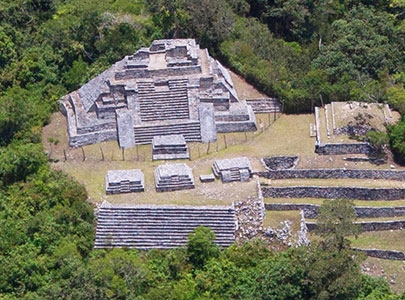
On a series of limestone hills and in the midst of the presence of three important water deposits -the Azul cenote and the Chanujabab and Tepancuapan lagoons- are the four main nuclei that make up this Mayan site, where the aquatic and solar deities were worshiped.
Its apogee is registered during the Late Classic period (600-900 A.D.) but, like other sites in the area, its occupation lasted until the end of the Early Postclassic period, around 1200 A.D
How to get there
This place is located 33 km from Comitán on federal highway 190, which leads to La Trinitaria, then continue along the Lagunas de Montebello National Park highway until you reach the town of Hidalgo, and take a road to the north that leads to the archaeological zone.
Schedule:
Monday to Sunday from 08:00 to 17:00
Cost:
Admission is free. There are restrooms, security personnel, and rest areas in the service module. At the moment there is no fee.
Activities:
Recommendations:
INAH (National Institute of Anthropology and History) recommends wearing comfortable clothing, and a willingness to hike and climb the Acropolis. Be sure to bring a hat, mosquito repellent, binoculars, and water. There are no stores nearby. In times of heavy rains (August-October) the river rises, so sometimes it is not accessible.
360 tour
Comitán de Domínguez, Chiapas
Mapastepec, Chiapas
Kayak Competition in Unión Santa Isabel
Mapastepec, Chiapas
Zoque Carnival of San Fernando
San Fernando, Chiapas
Festival in Honor of Our Lord Jesus Christ of Acapetahua
Acapetahua, Chiapas

